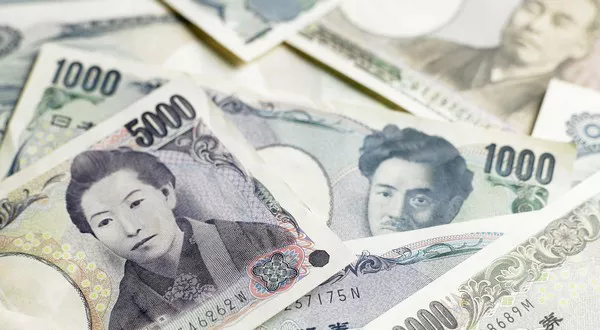Exchanging currency, particularly Japanese yen, is an integral part of international travel. Whether visiting Japan for business or pleasure, understanding the fees associated with currency exchange is crucial for managing expenses effectively. In this article, we explore the various fees travelers may encounter when exchanging Japanese yen, providing insights into how to minimize costs and maximize value.
The Complexity of Currency Exchange Fees:
Currency exchange involves converting one currency into another, typically facilitated by banks, exchange bureaus, or automated teller machines (ATMs). While the process may seem straightforward, various fees and charges can impact the overall cost of exchanging currency.
When exchanging Japanese yen, travelers may encounter several types of fees, including transaction fees, service charges, and commissions. Additionally, exchange rates can vary widely between providers, further influencing the total cost of currency exchange.
Understanding these fees and how they are calculated is essential for travelers seeking to minimize costs and make informed decisions about currency exchange.
3 Fees Associated with Exchanging Japanese Yen
1. Transaction Fees:
Transaction fees are charges levied by banks, exchange bureaus, or ATM operators for processing currency exchange transactions. These fees can vary significantly depending on the provider and the type of transaction.
Bank Transaction Fees:
When exchanging currency at a bank, travelers may incur transaction fees based on the size and type of transaction. Some banks charge a flat fee per transaction, while others may assess a percentage-based fee calculated on the total amount exchanged.
Exchange Bureau Transaction Fees:
Exchange bureaus typically charge transaction fees for currency exchange services. Similar to banks, these fees may be flat-rate or percentage-based and can vary between providers.
ATM Transaction Fees:
Using ATMs to withdraw Japanese yen may incur transaction fees imposed by both the traveler’s home bank and the ATM operator in Japan. These fees can include flat-rate charges per transaction, currency conversion fees, and international withdrawal fees.
2. Service Charges:
In addition to transaction fees, travelers may encounter service charges associated with currency exchange services. These charges cover the operational costs of providing exchange services and may be included in the exchange rate or assessed separately.
Bank Service Charges:
Banks may impose service charges for currency exchange transactions, which are typically included in the overall cost of the transaction. These charges help cover the administrative expenses associated with providing exchange services.
Exchange Bureau Service Charges:
Exchange bureaus may apply service charges to currency exchange transactions, similar to banks. These charges contribute to the overhead costs of operating exchange bureaus and providing customer service.
ATM Service Charges:
While ATM operators in Japan generally do not levy service charges directly on currency withdrawals, travelers may still incur fees imposed by their home bank. These fees can vary depending on the bank and the type of account held by the traveler.
3. Commissions:
Commissions are fees charged by currency exchange providers for facilitating transactions and may be assessed in addition to transaction fees and service charges. Commissions are typically calculated as a percentage of the total transaction amount.
Bank Commissions:
Some banks charge commissions for currency exchange transactions, particularly for large or complex transactions. These commissions compensate the bank for the risk and administrative overhead associated with handling currency exchanges.
Exchange Bureau Commissions:
Exchange bureaus may also apply commissions to currency exchange transactions, particularly for high-value transactions or specialized currency pairs. These commissions help cover the costs of maintaining exchange operations and managing currency inventory.
Commission-Free Offers:
Some currency exchange providers advertise commission-free offers to attract customers. While these offers may seem appealing, it’s essential to carefully review the exchange rates and other fees associated with the transaction to ensure a transparent and cost-effective exchange.
Navigating Currency Exchange Fees:
Given the array of fees associated with exchanging Japanese yen, travelers may wonder how to navigate the process to minimize costs effectively. Here are some strategies to consider:
Compare Rates and Fees:
Before exchanging currency, compare rates and fees offered by different providers to identify the most cost-effective option. Consider both transaction fees and service charges, as well as any commissions that may apply.
Avoid High-Fee Providers:
Be cautious of providers that impose excessive fees or offer unfavorable exchange rates. Avoid exchanging currency at airports or tourist areas, where fees may be higher due to operating costs.
Consider ATM Withdrawals:
Using ATMs to withdraw Japanese yen can be a convenient and cost-effective option, particularly for small to moderate amounts. Look for ATMs that offer favorable exchange rates and minimal withdrawal fees.
Use Fee-Free Services:
Some banks and financial institutions offer fee-free currency exchange services for account holders. Take advantage of these offers when available to reduce costs associated with currency exchange.
Plan Ahead:
Plan currency exchange transactions in advance to avoid last-minute fees or unfavorable rates. Monitor exchange rate trends and consider exchanging currency during periods of favorable rates to maximize value.
Opt for Local Currency:
When making purchases in Japan, opt to pay in Japanese yen rather than using foreign currency or credit cards. Paying in local currency can help avoid additional fees associated with currency conversion and international transactions.
Notify Your Bank:
Before traveling to Japan, notify your bank of your travel plans to prevent issues with card transactions and ATM withdrawals. Inquire about any fees or restrictions that may apply to international transactions.
Conclusion:
Exchanging Japanese yen involves navigating a complex landscape of fees, charges, and exchange rates. By understanding the various fees associated with currency exchange and implementing strategies to minimize costs, travelers can effectively manage their finances while exploring the Land of the Rising Sun.
Whether exchanging currency at banks, exchange bureaus, or ATMs, it’s essential to compare rates, consider fees, and plan transactions thoughtfully. With careful planning and awareness of potential costs, travelers can optimize their currency exchange experience and make the most of their time in Japan.


